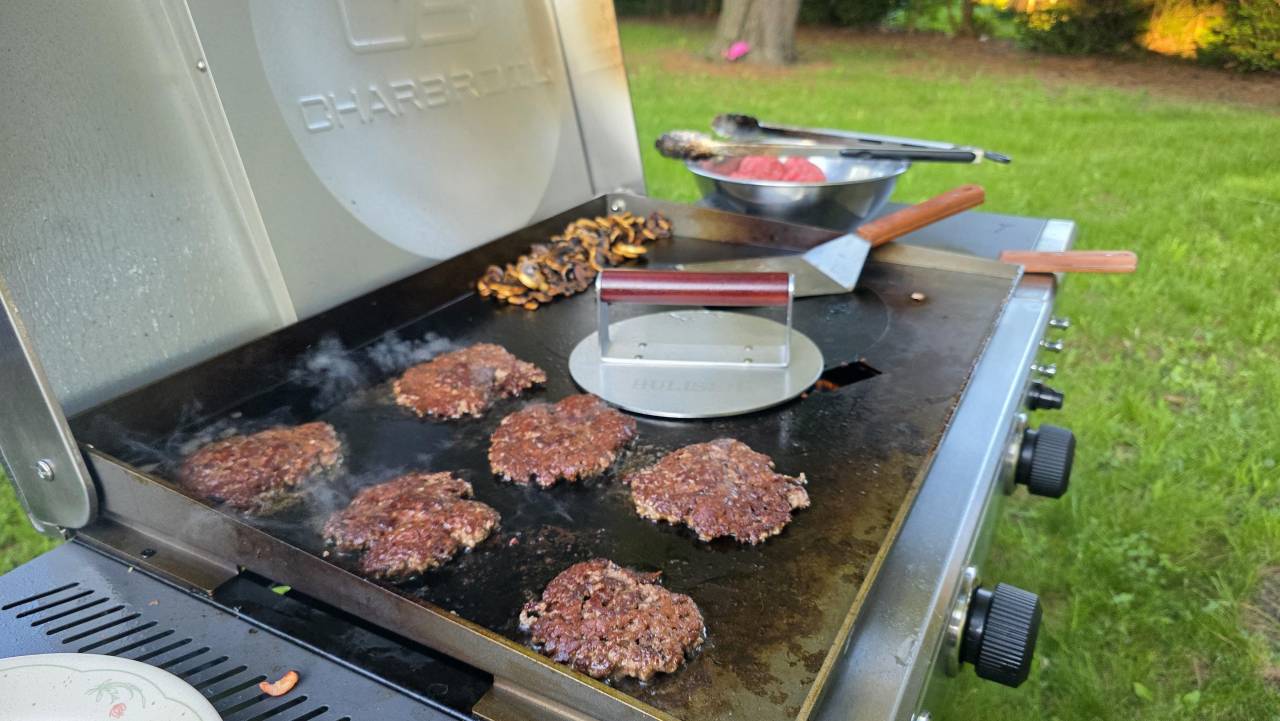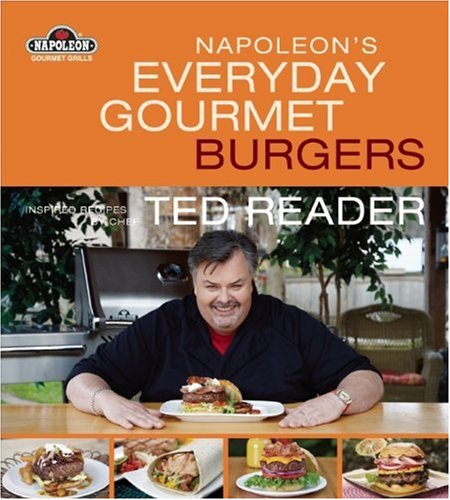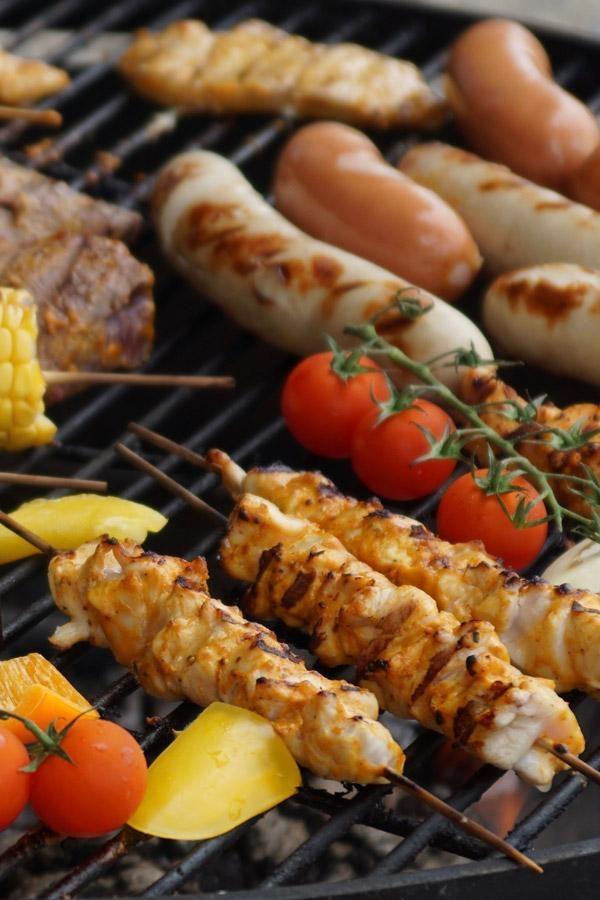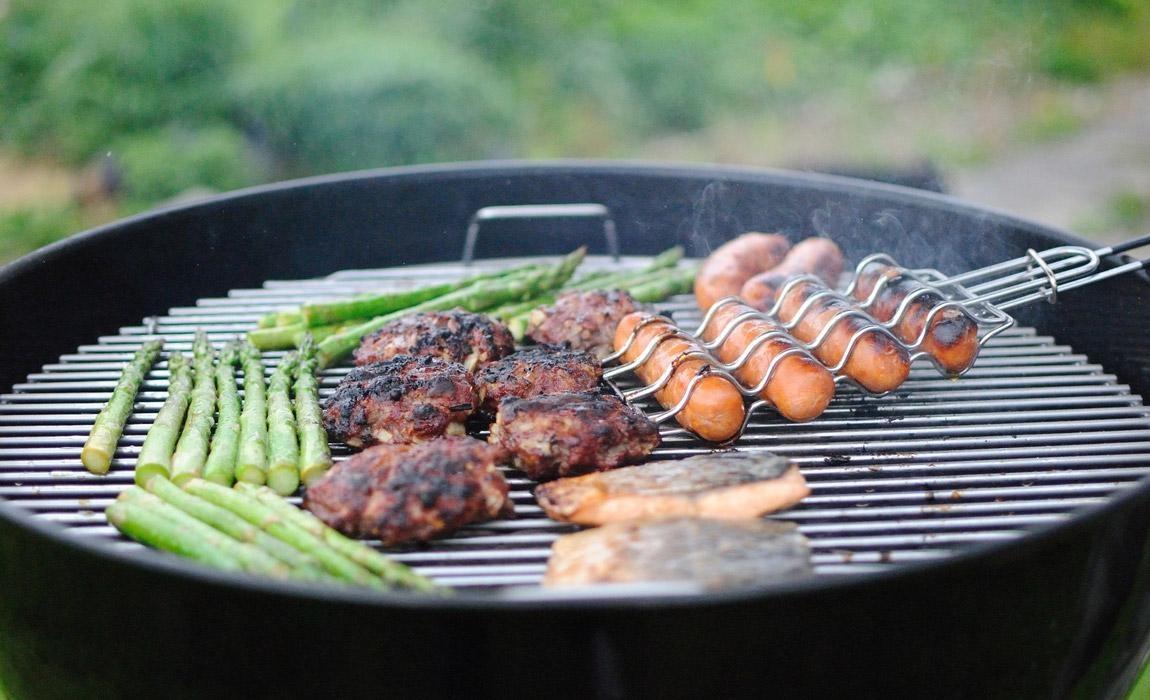Backyard grilling mastery transforms ordinary weekends into legendary gatherings that friends and family remember long after the last ember dies. The journey from amateur cook to neighborhood grill master follows a clear progression of equipment mastery, technique development, and culinary confidence.
If You Could Give A Healthy Eating Tip to Your Younger Self, What You Share?
- Start with solid equipment: Choose one primary grill type and master it completely before expanding, focusing on gas for convenience or charcoal for authentic flavor development.
- Master heat control first: Understanding direct heat, indirect heat, and temperature zones forms the foundation for every advanced grilling technique and ensures consistent results.
- Expand beyond basic proteins: Developing skills with different cuts of meat, fresh vegetables, and complete meal coordination separates good grillers from true backyard legends.
- Build your signature style: Creating unique flavor profiles, presentation techniques, and entertaining systems establishes your reputation as the go-to outdoor chef for guys trips and family gatherings.
- Invest in quality tools: Professional-grade thermometers, long-handled utensils, and proper safety equipment protect your investment while delivering restaurant-quality results.
Foundation Phase: Getting Your Setup Right
Building a solid grilling foundation begins with making smart equipment choices that match your cooking style, available space, and entertainment goals. The right equipment investment pays dividends for years while poor choices create frustration and inconsistent results.
Gas Grills: Convenience and Control
Gas grills deliver convenience and precise temperature control for busy weeknight cooking and consistent results across different proteins. Modern gas systems provide instant ignition, adjustable heat zones, and reliable performance for beginners building confidence. The ability to maintain steady temperatures makes gas ideal for delicate fish and vegetables that require careful heat management.
Charcoal Grills: Authentic Flavor Development
Charcoal grills produce authentic smoky flavors that gas cannot replicate while reaching higher temperatures for superior searing capabilities (though premium gas grills with infrared sear burners now achieve similar high-heat performance). Weber kettle grills remain the gold standard, offering versatility through coal arrangement techniques and vent adjustments. Charcoal requires more skill and time investment but rewards dedicated practitioners with superior flavor development.



Smokers: Low Temperature Mastery
Dedicated smokers excel at low-temperature cooking for tough cuts like brisket, pork shoulder, and ribs. Offset smokers provide traditional smoking experiences while pellet grills offer convenience through automated temperature control and can reach grilling temperatures of 450-550°F/232-288°C while providing wood-smoke flavor. Smoking meat often becomes an obsession once you experience perfectly rendered barbecue from your own backyard.
Essential Tool Collection
Every grill master needs a core set of professional-grade tools that ensure safety, precision, and consistent results:
- Digital probe thermometers eliminate guesswork in achieving perfect doneness across different proteins
- Instant-read models provide quick checks while leave-in probes monitor long cooking sessions
- Long-handled tongs (16 inches minimum) handle everything from delicate vegetables to heavy roasts (choose non-locking tongs to prevent burns from short grip handles when locked)
- Heavy-duty spatulas with beveled edges slide under foods without tearing
- Grill cleaning brushes maintain clean cooking surfaces (avoid wire-bristle brushes due to stray bristle risks; choose coil-spring or nylon alternatives)
- Heat-resistant gloves protect hands during coal arrangement and hot food handling
- Quality aprons shield clothing from heat and splatter while providing tool storage
Basic Outdoor Prep Setup
A dedicated prep space enhances cooking efficiency, regardless of your budget or available space. A weather-resistant cart provides mobile prep surface, tool storage, and ingredient organization. Include a large cutting board, storage containers, and basic lighting for evening cooking sessions.
Water access simplifies cleanup and food safety protocols. A simple bucket and spigot system works for basic setups while permanent installations support advanced outdoor kitchens. Proper storage protects tools and ingredients from weather while keeping everything organized and accessible. Always keep raw meat cutting boards and utensils separate from ready-to-eat foods, and maintain coolers with ice packs for ingredient safety during summer cookouts.
You also want to make sure you take into account hygiene and cleanup so that you can avoid attracting pests.
Technique Mastery: The Core Skills
Mastering fundamental grilling techniques provides the foundation for consistent results and culinary confidence. Heat management and timing separate good cooks from great ones across every type of protein and cooking method.
Heat Management and Zone Cooking
Understanding different heat applications allows you to maximize your grill's versatility while ensuring optimal results for various foods.
Direct Heat Applications
Direct heat creates the high temperatures necessary for proper searing and caramelization. Position coals or set gas burners to high for steaks, chops, and vegetables requiring quick cooking. Direct heat typically ranges from 400-600°F/204-316°C and works best for foods cooking in under 20 minutes.
Indirect Heat Methods
Indirect heat functions like an outdoor oven for larger cuts requiring longer cooking times. Arrange coals to one side of charcoal grills or turn off burners on gas models to create heat zones. Indirect cooking maintains temperatures between 250-350°F/121-177°C ideal for whole chickens, roasts, and thick steaks requiring gentle finishing.
Two-Zone Setup Benefits
Two-zone setups provide maximum versatility by combining direct and indirect areas on the same grill. Start proteins over direct heat for searing then move to indirect zones for gentle finishing. This technique ensures proper crust development while maintaining moisture and achieving target internal temperatures.
Temperature Control and Timing
Precision in temperature monitoring and timing coordination ensures consistent results while preventing overcooking expensive ingredients.
- Internal temperature determines doneness with precision that visual cues cannot match
- USDA recommends 145°F/63°C + 3-minute rest for all whole-muscle beef, pork, veal, and lamb (note: many prefer medium-rare beef at 130-135°F/54-57°C, which is below USDA guidance)
- Chicken requires 165°F/74°C for food safety
- Ground meats including burgers need 160°F/71°C internal temperature
- Fish varies by species and preparation method
- Resting periods allow temperature carryover and juice redistribution for optimal texture
- Remove steaks 5°F/3°C below target temperature then rest for 5-10 minutes under loose foil
- Larger roasts continue cooking for 10-15 minutes after removal from heat

Menu Expansion: Beyond Burgers and Dogs
Expanding your protein repertoire and incorporating quality vegetables creates complete outdoor dining experiences that rival restaurants. Diverse menus showcase technical skills while accommodating different tastes and dietary preferences at your gatherings.
Mastering Different Proteins
Each protein category requires specific techniques and understanding to achieve optimal results while maintaining food safety standards.
Premium Beef Preparation
Premium beef selection elevates every cookout beyond standard grocery store options. Sourcing quality steaks online provides access to superior marbling, aging, and cuts unavailable locally. Understanding grade differences and preparation techniques ensures your investment delivers exceptional results.
Chicken Cooking Techniques
Chicken requires different approaches for various cuts. Bone-in pieces benefit from indirect cooking while boneless cuts work well over direct heat. Brining improves moisture retention while marinades add flavor complexity. Always verify 165°F/74°C internal temperature for food safety.
Pork Mastery Methods
Pork offers excellent value with proper technique. Thick chops benefit from searing, then indirect finishing, while tenderloin cooks quickly over direct heat. Follow USDA guidelines of 145°F/63°C with 3-minute rest for whole-muscle pork cuts. Shoulders and ribs require low-temperature smoking for optimal tenderness and flavor development.
Fish Grilling Excellence
Fish demands gentle handling and precise timing. Firm fish like salmon and tuna handle direct grilling while delicate species benefit from foil packets or cedar plank methods. Oil selection impacts both flavor and cooking performance with high-heat oils like avocado oil providing superior results.
Elevating Vegetables and Sides
Grilled vegetables deserve equal attention to proteins in creating memorable outdoor meals. Root vegetables benefit from pre-cooking or foil packet methods while quick-cooking options like asparagus and zucchini excel over direct heat. Uniform cutting ensures even cooking while proper oiling prevents sticking.
Develop signature vegetable preparations that complement your protein selections:
- Grilled corn becomes special with compound butter applications
- Roasted peppers add color and sweetness to any plate presentation
- Seasonal ingredient selection keeps menus fresh throughout the grilling season
- Complete outdoor meal coordination includes grilled bread and warm salads
- Traditional sides adapted for outdoor preparation maintain optimal serving temperatures
Advanced Mastery: Becoming the Neighborhood Legend
Advanced grill masters develop signature techniques, unique flavor profiles, and entertaining systems that establish their reputation as the go-to outdoor chef. Consistency and innovation separate good backyard cooks from legendary hosts who create experiences people eagerly anticipate.
Signature Techniques and Flavor Development
Creating distinctive approaches to common ingredients establishes your reputation while providing reliable results for regular entertaining.
Custom Seasoning Development
Create unique seasoning blends that become your signature across different proteins. Develop dry rubs for beef, herb marinades for chicken, and finishing sauces that complement your cooking style. Document successful combinations for consistent reproduction during future gatherings.
Advanced Cooking Methods
Master advanced techniques like reverse searing for thick steaks, spatchcocking whole chickens, and proper smoking wood selection for different proteins. Each technique expands your capabilities while providing conversation topics that showcase your expertise.
Global Flavor Integration
Explore global flavor influences beyond traditional American barbecue. Mediterranean herbs, Asian marinades, and Latin spice combinations add variety while demonstrating culinary sophistication. Consider incorporating techniques from regional specialties like elevated hot dogs that surprise guests with familiar foods prepared exceptionally.
Entertaining and Presentation Excellence
Professional presentation elevates simple ingredients into restaurant-quality experiences while creating memorable gatherings that guests eagerly anticipate.
- Invest in quality serving platters and organized serving systems
- Maintain food quality with proper warming methods for multiple dishes
- Develop signature cocktails and beverage pairings for your specialties
- Plan entertainment elements including music, games, and seating arrangements
- Create coordinated experiences that combine excellent food with engaging social interaction
- Consider lighting, ambiance, and weather protection for year-round entertaining
The Mark of True Mastery
The ultimate backyard grill master creates experiences that transcend simple food preparation. Like understanding the complexity behind traditional regional recipes, true mastery comes from respecting ingredients, perfecting techniques, and continuously learning from each cooking session. The journey from amateur to expert follows a clear progression, but the destination keeps evolving as your skills and confidence grow. Most importantly, remember that the best grilling memories happen when technique serves the greater purpose of bringing people together around exceptional food and warm hospitality.
